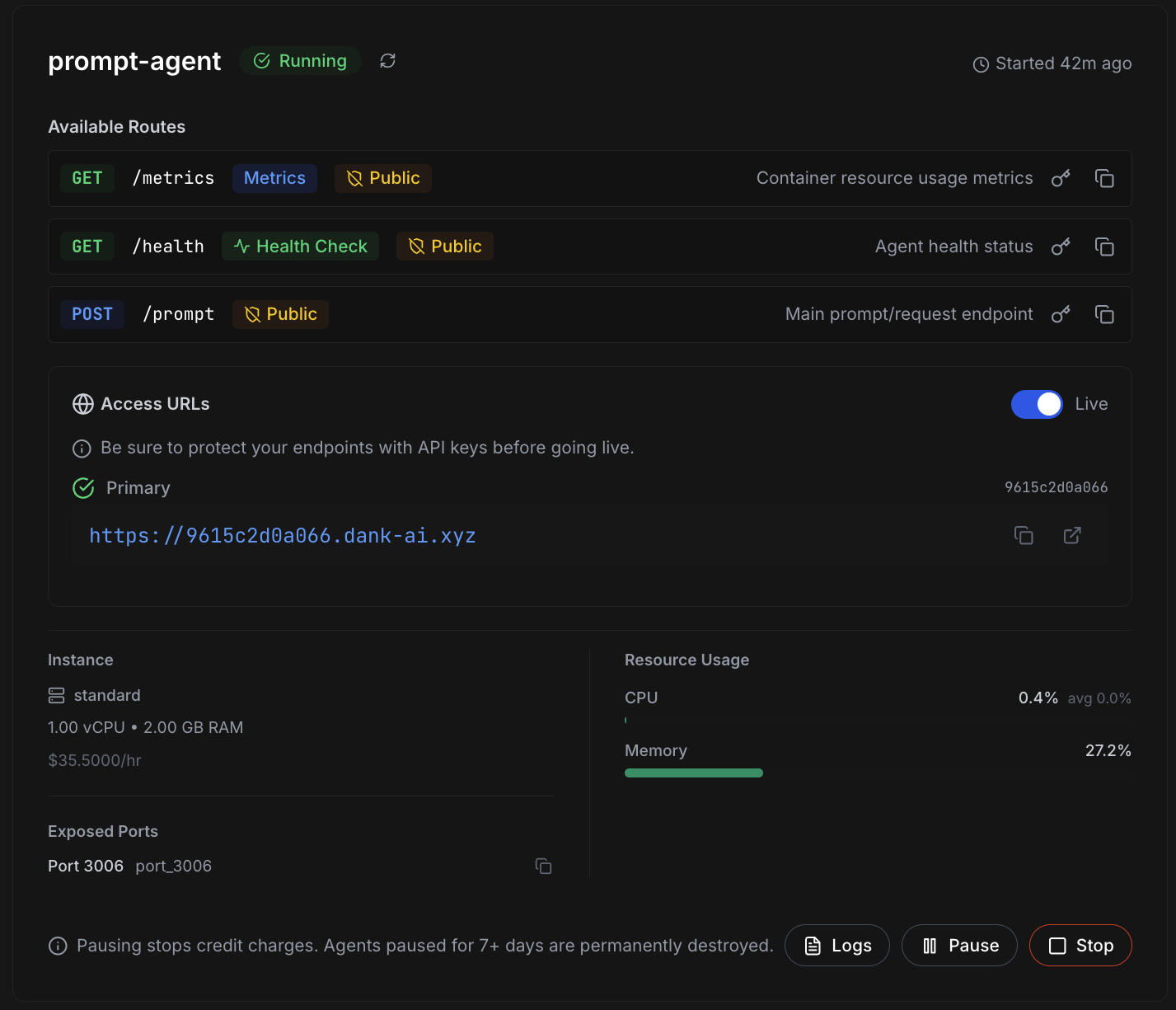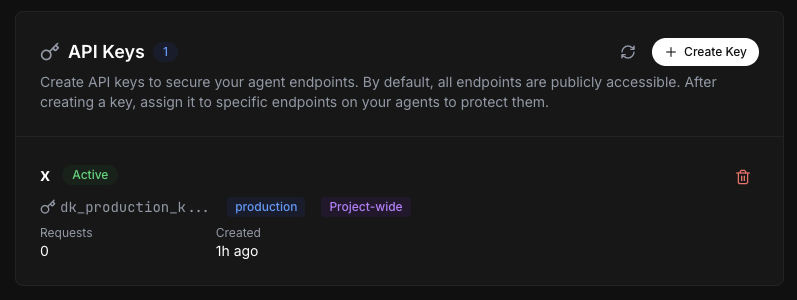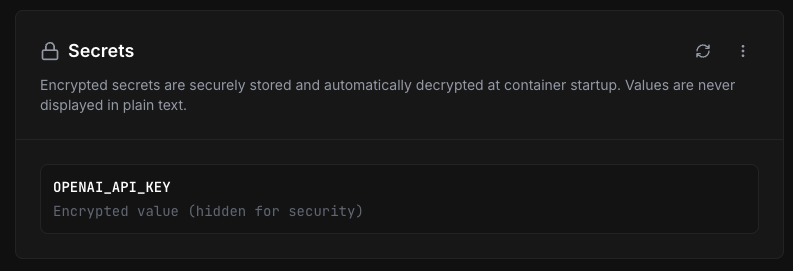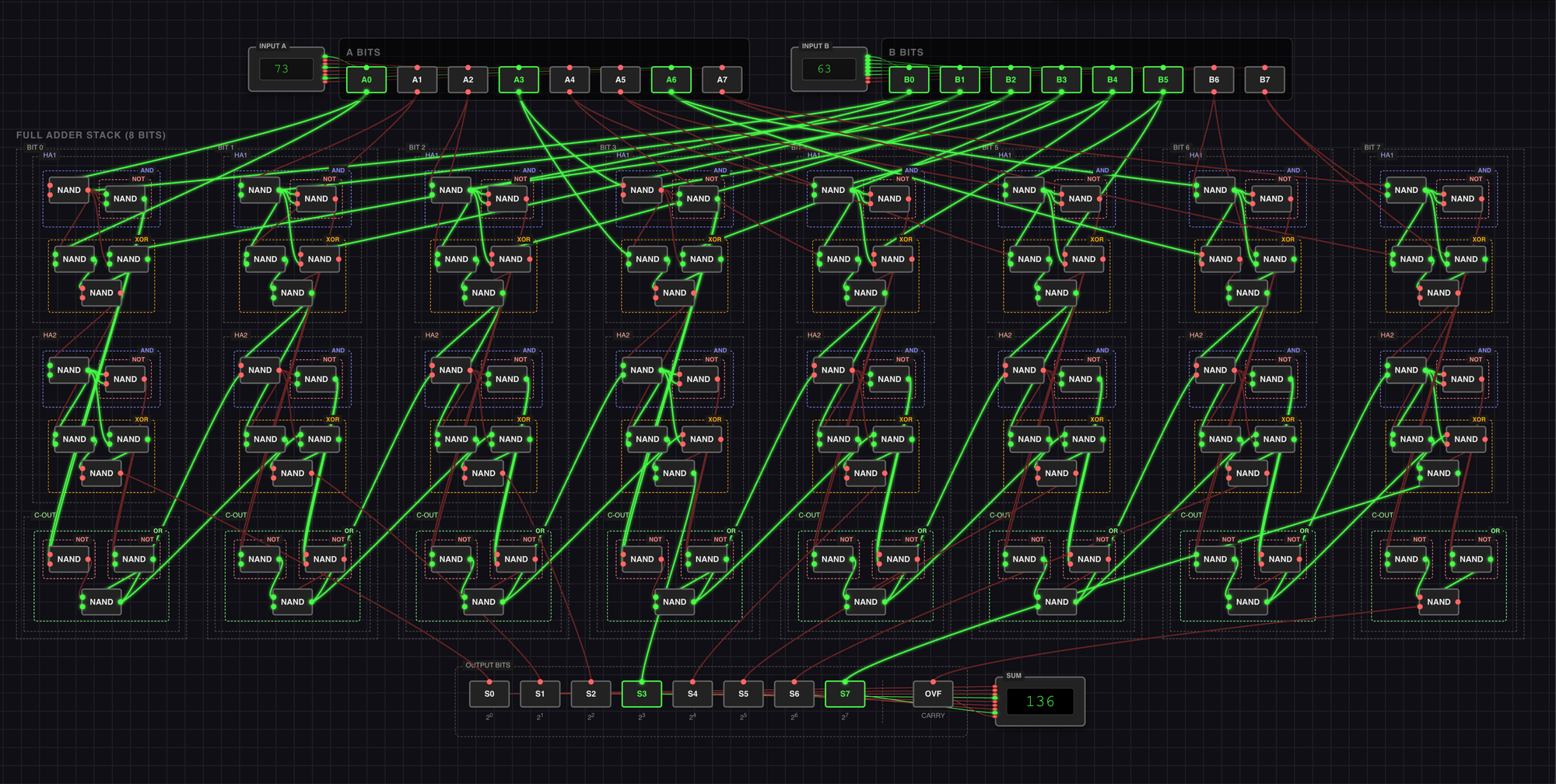
![]()
JavaScript-native AI agent orchestration via containerization. Deploy anywhere, scale infinitely.
Quick Start
Get started in 3 steps
From installation to running your first agent in under 5 minutes.
1
Install Dank
Install Dank globally with a single command. Auto-detects and installs Docker if needed.
2
Initialize Project
Create your agent configuration and project structure with built-in templates.
3
Run Agents
Deploy and manage your agents with Docker orchestration and real-time monitoring.
Why Dank
Built for the modern developer
JavaScript-powered, Docker-native, and open-source from day one.
Multi-Agent Orchestration
Deploy and manage multiple AI agents as containerized services

JS
JavaScript Native
Built on the world's most popular programming language. No Python dependencies, no complex setup—just familiar JavaScript that every developer knows.
98% of developers use JavaScript
Universal Deployment
Docker containers work everywhere—AWS, GCP, Azure, Kubernetes, or your own servers. Deploy to any stack, any cloud, any infrastructure.
100% infrastructure agnostic
Open Source & Extensible
MIT licensed and community-driven. Add custom LLM providers, extend functionality, or contribute back to the ecosystem.
MIT licensed • Community driven
CI/CD Made Simple
Docker-native architecture means your agents build, test, and deploy like any other containerized application.

Production-Ready Images
Dank automatically builds optimized Docker images of your agents with all dependencies included. No more "works on my machine" issues.
dank build --push registry.com/my-agent:v1.0
Universal Compatibility
Deploy to any container orchestration platform—Kubernetes, Docker Swarm, AWS ECS, or your own infrastructure. Same agent, anywhere.
Kubernetes•Docker Swarm•AWS ECS•Azure ACI
Configuration
Define agents in seconds
Simple JavaScript configuration with powerful Docker orchestration under the hood.
const
{ createAgent }
= require('dank-ai');
agents: [
createAgent('customer-service')
model: 'gpt-4',
temperature: 0.7
memory: '1g',
cpu: 2
.setPrompt(`You are a helpful customer service agent...`)
.addHandler('output', console.log)
]
Simple Configuration
Define your AI agents with clean, readable JavaScript. No complex YAML files or obscure configuration syntax.
1
Choose Your LLM
OpenAI, Anthropic, Cohere, Ollama—or add your own custom provider with a few lines of code.
2
Configure Resources
Set memory, CPU, and timeout limits. Dank handles the Docker container configuration automatically.
3
Add Event Handlers
Define prompts, add event handlers, and customize behavior with familiar JavaScript patterns.
Management
Direct Agent Control
Manage every aspect of your containerized agents through an intuitive interface. Monitor performance, configure resources, secure endpoints, and optimize utilization in real-time.

Resource Management
Allocate CPU, memory, and storage per agent. Set resource limits and requests to ensure optimal performance without over-provisioning.
- Dynamic resource scaling
- Real-time utilization metrics
- Cost optimization insights
Endpoint Configuration
Configure HTTP endpoints, webhooks, and API routes for each agent. Manage request routing, rate limiting, and response handling.
- Custom endpoint routing
- Request/response logging
- Load balancing controls
Security & Access Control
Implement authentication, authorization, and encryption at the agent level. Define access policies and manage API keys securely.
- API key management
- Role-based access control
- TLS/SSL encryption
Performance Monitoring
Track agent performance with detailed metrics and logs. Monitor response times, error rates, and resource consumption in real-time.
- Live performance dashboards
- Historical analytics
- Alerting and notifications
Full control, zero complexity. Manage agents like containers, deploy like microservices.
Built on Docker standards
Production Ready
Deploy with Confidence
Enterprise-grade security, dedicated endpoints, and secure configuration management built in from day one.

Custom API Keys
Protect endpoints with custom API keys. Expose public endpoints for customers while securing internal endpoints for your team with granular access control.
- Per-endpoint authentication
- Team vs customer access
- Key rotation and management

Dedicated Hostnames
Deploy and go straight to production with operational agent addresses. Each agent gets its own dedicated hostname for immediate accessibility.
- Instant production URLs
- Custom domain support
- SSL/TLS by default

Environment Variables
Parameterize your agent configuration with environment variables. Update settings without redeploying code for flexible, maintainable agents.
- Runtime configuration
- Environment-specific values
- No code changes needed

Secure Secrets
Store API keys, tokens, and sensitive credentials securely. Encrypted at rest with access controls to protect your production deployments.
- Encrypted storage
- Audit logging
- Role-based access
Production-ready from the start. Security, scalability, and reliability built into every deployment.
CLI Commands
Powerful command-line interface
Deploy, build, and manage your agents with simple commands.
Dank automatically builds Docker images, manages containers, and provides real-time monitoring with zero configuration.
Create optimized Docker images with all dependencies included. Perfect for production deployment and CI/CD pipelines.
Build and push your agent images to any Docker registry. Integrates seamlessly with GitHub Actions and GitLab CI.
Event-Driven Architecture
Event Triggered Architecture
Loose coupling, flexible development, and patterns every developer already knows.
const agent = createAgent('smart-assistant');
// Preprocess requests before LLM
agent.addHandler('request_input', async (context) =>
{
const
{ input, userId }
= context;
// Fetch user context from database
const userHistory = await getUserHistory(userId);
const ragContext = await searchRAG(input);
// Enhance context before LLM
context.enhancedInput =
{
original: input,
history: userHistory,
ragContext: ragContext
// Process LLM responses
agent.addHandler('request_output', async (response) =>
{
// Save conversation to database
await saveConversation(response);
// Update user preferences
await updateUserPreferences(response);
// Handle errors gracefully
agent.addHandler('request_error', async (error) =>
{
await logError(error);
await notifyAdmin(error);
Stateless runtime wrapped with stateful event handlers
Intercept requests before they hit the LLM to add database calls, RAG systems, and user context. Make your agents stateful and context-aware with familiar JavaScript patterns.
Familiar Patterns
Event listeners, async/await, and standard JavaScript patterns. No new syntax to learn—just the patterns you already use.
Loose Coupling
Handlers are independent and composable. Add, remove, or modify logic without affecting other parts of your system.
Easy Testing
Test individual handlers in isolation. Mock events, verify outputs, and ensure reliability with standard testing practices.
Built-in Events
request_input
request_output
request_error
agent_start
agent_stop
agent_output
custom-event
any-event
Preprocess requests, enhance responses, and add stateful behavior with database calls and RAG systems.
Distributed Runtime
Each agent gets its own runtime
Deploy agents across disparate cloud services with independent scaling and resource allocation.
Independent Agent Runtimes
Each agent runs in its own isolated container
Runtime: Node.js 18 • Memory: 1GB • CPU: 2 cores
Runtime: Node.js 18 • Memory: 2GB • CPU: 4 cores
Content Generation Agent
Azure Container Instances
Runtime: Node.js 18 • Memory: 512MB • CPU: 1 core
True Horizontal Scaling
Each agent is packaged as an independent Docker container that can be deployed to any cloud provider, scaled independently, and managed separately from other agents.
Independent Scaling
Scale each agent based on its specific workload. High-traffic agents get more resources while low-usage agents stay cost-effective.
Multi-Cloud Deployment
Deploy different agents to different cloud providers. Use AWS for some, GCP for others, Azure for compliance requirements.
Isolated Resources
Each agent gets its own memory, CPU, and network resources. No resource contention between agents, ensuring consistent performance.
Registry Agnostic
Commit agent runtimes to any container registry—Docker Hub, AWS ECR, GCP Artifact Registry, or Azure Container Registry.
Serverless for Agents
Deploy with Dank Cloud
As easy as Vercel, but for AI agents. Deploy in seconds, scale automatically, pay only for what you use.
Zero configuration required
$10 Free Credits
New users get $10 in free credits to explore Dank Cloud. No credit card required to start.
Simple, Usage-Based Pricing
Choose the right instance type for your workload. Pricing is based on actual usage time.
Small
0.25 vCPU, 1 GB RAM
$0.02
per hour
CPU0.25 vCPU
Memory1.00 GB
Medium
0.5 vCPU, 2 GB RAM
$0.03
per hour
CPU0.50 vCPU
Memory2.00 GB
Popular
Large
1 vCPU, 4 GB RAM
$0.06
per hour
CPU1.00 vCPU
Memory4.00 GB
XLarge
2 vCPU, 8 GB RAM
$0.13
per hour
CPU2.00 vCPU
Memory8.00 GB
Deploy AI agents with confidence.
Runtime independent AI Agent Framework.
Creator
Built in the shadows

Delta-Darkly
An elusive figure who emerges from the digital shadows, crafting tools that exist in the liminal space between human creativity and artificial intelligence. Delta-Darkly operates in the interstices of code and consciousness, building bridges between worlds that were never meant to meet.
Like a digital phantom, they appear only when the code compiles and the containers run. Their presence is felt in the elegant simplicity of solutions that others find impossibly complex.
Support
Keep Dank Open Source
Help keep Dank free and open source. Your donations support development, infrastructure, and the continued evolution of containerized AI agent orchestration.

Donation Address
0xF4E97E86c4e2a7CF60bAa3Fae78F80a4CDE86fCD
Accepts ETH and ERC-20 tokens
Works on any EVM-compatible network
Supports development and infrastructure
.png)



